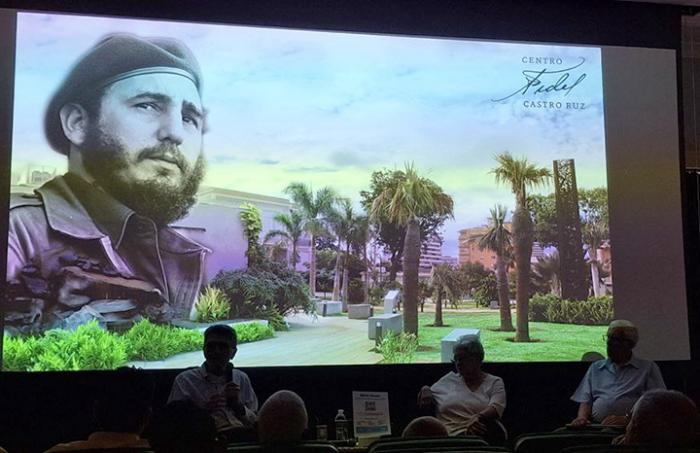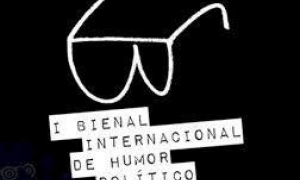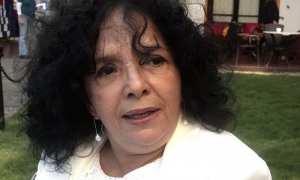
There is no book written about Fidel that does not arouse immediate interest: although everyone has a personal approach to his figure, there is also a consensus that the Historical Leader of the Cuban Revolution -his life, work and thought- constitutes a universe yet to be studied.
That deepening is, for many reasons, necessary for the country project that the Island defends; some of them are revealed in the book Fidel Castro Ruz: El oficio de rebelde, by Romelia Pino Freyre; a text that, in the words of Roberto Hernandez, PhD in Sciences, its presenter, combines philosophical, historical and educational approaches, both in its intention and structure, and does not sin of simplistic didacticism, to give arguments, supported by facts, that endorse an assertion: Fidel is the best disciple of José Martí.
Presented this Wednesday at the La Plata multipurpose hall of the Fidel Castro Ruz Center, the text -published under the labels Ruth Casa Editorial, and Ciencias Sociales, of the Nuevo Milenio Publishing Group- is addressed, according to its synopsis, "to a wide audience that needs to know from their youth or remember from their maturity the beauty and the vertiginous rhythm of our Revolution in those first three years."
To this end, the author resorts to the historical and philosophical analysis of the great battles waged by the Commander-in-Chief in that foundational stage; when dialogues with the people, speeches and appearances played a decisive role: "It was an educational process of the masses that transformed their old mentality until they became the undisputed subject of the Revolution."
In short, the 385 pages of the volume contain transforming processes, based on the facts and the theory that supported them. Hernández emphasized that the work does not shy away from debate, and therefore reflects on aspects such as identifying the ideology of the Revolution only with Marxism-Leninism is a reductionism.
Carlos Tablada Pérez, president of Ruth Casa Editorial, affirmed that it was impossible to think of making a Revolution so close to the United States, and it was possible because Fidel Cubanized Marxism-Leninism and made a contribution to the worker-peasant alliance, and to the dictatorship of the proletariat: the category of the people; "he made the impossible possible."
The main thing of the Cuban Revolution is ethics, Tablada added, it was made by a generation that put the human being at the center; and she said that this book contributes to give the practical elements of the Commander-in-Chief's actions in this regard.
The author, PhD in Philosophical Sciences, researcher and professor, said that "we carry Fidel in our hearts, and that is the best monument that can be made to him"; and said she feels she is a daughter of the Revolution, which allowed a mulatto, daughter of a cobbler, born in a marginal environment, to become an organic intellectual.






